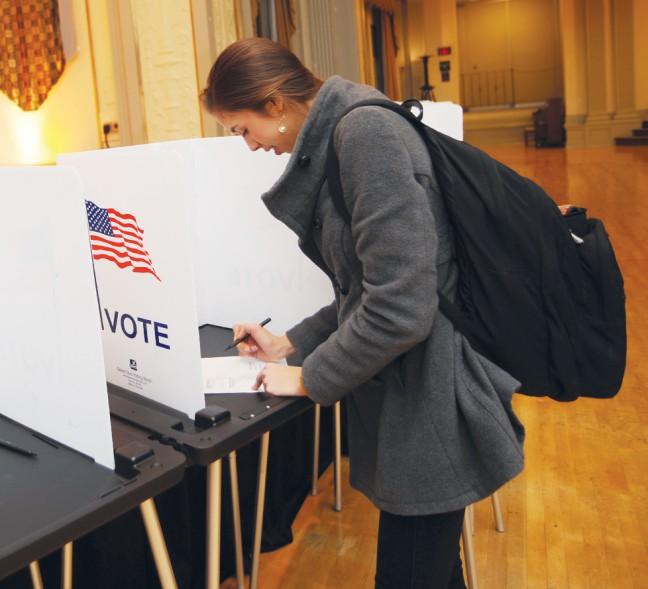Preparing for the August and November elections, the Government Accountability Board pushed the Joint Committee on Finance for more funds to improve voter ID law education across Wisconsin.
The GAB created and voted 4-2 for a proposal requesting $250,000 from the Joint Committee on Finance Monday. GAB spokesperson Reid Magney said the money would go into creating television advertisements and other similar voter ID law education initiatives.
Wisconsin’s voter ID law was created in 2011, but was never fully implemented because of lawsuits against it between then and 2016, Magney said. GAB created several videos and advertisements to educate the public about the voter ID law in 2011, but never broadcasted them. The February Wisconsin Supreme Court primary was the first election that used the voter ID requirement.
The $250,000 in state funds GAB requested would help GAB develop and broadcast advertisements to the public between now and the November presidential election, Magney said.
“The ads and videos are a rocket and the funding is the fuel we need for it to take off,” Magney said.
Jay Heck, Wisconsin Common Cause director, said it is “essential” that GAB receives the funding from the Joint Committee on Finance. He said a lack of voter education campaigning on the Legislature’s part negatively impacted voters during the February and April primaries. Many voters were unsure of what documents were necessary and valid, which could have discouraged them from voting, he said.
The only efforts made to educate the public statewide were through Common Cause, GAB’s website and other local initiatives, Heck said. Any of the voter ID law education efforts made in 2011 were meaningless for the February and April primaries because they were too long ago.
Heck said GAB itself did not put forth enough energy before the February primary to obtain more funds. But even if it had, $250,000 would not have been enough for the four state elections in February, April, August and November 2016. This amount could make a difference for the August and November elections, though, he said.
Assembly Speaker Robin Vos, R-Rochester, said in a statement he supports voter education, but a lot of the money that could have gone toward developing it went toward defending the voter ID law in “frivolous lawsuits” instead. He said the same groups that lobbied against the law are now asking for more voter education efforts.
But Heck said putting money into voter education should be a priority. He said some have argued more money does not need to go into voter education efforts because people should “just know” about it. He said this view is unrealistic and potentially problematic.
“There is almost nothing more important than making people aware of changes in the law and what they need to do to cast a vote,” Heck said. “It’s a perfectly legitimate and absolutely necessary use of public funds in order to educate the population about their most basic civil function.”
Rep. John Nygren, R-Marinette, who is co-chair of the Joint Committee on Finance, said in a statement the committee will be seriously considering GAB’s request. He said maintaining the integrity of elections and ensuring every vote is counted is not a partisan issue and should be important to all.
The Joint Committee on Finance is currently examining the proposal and is expected to release a decision during its next session in May.


